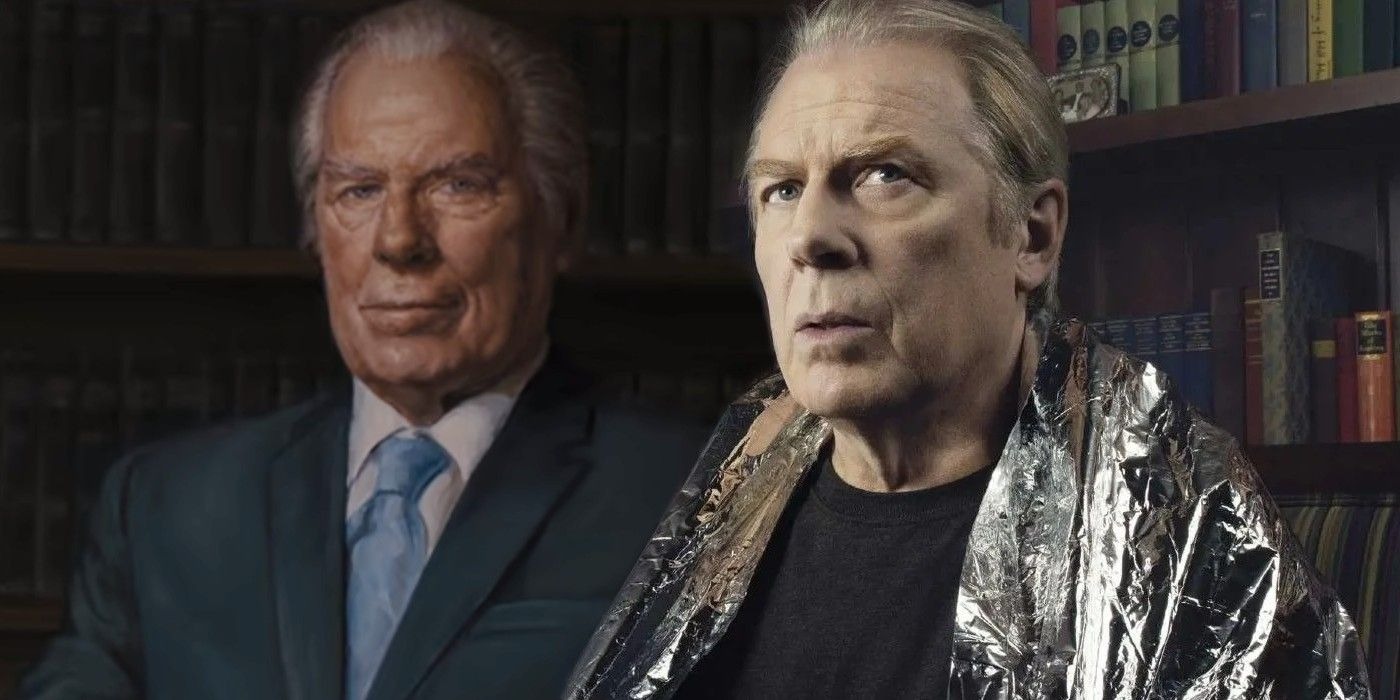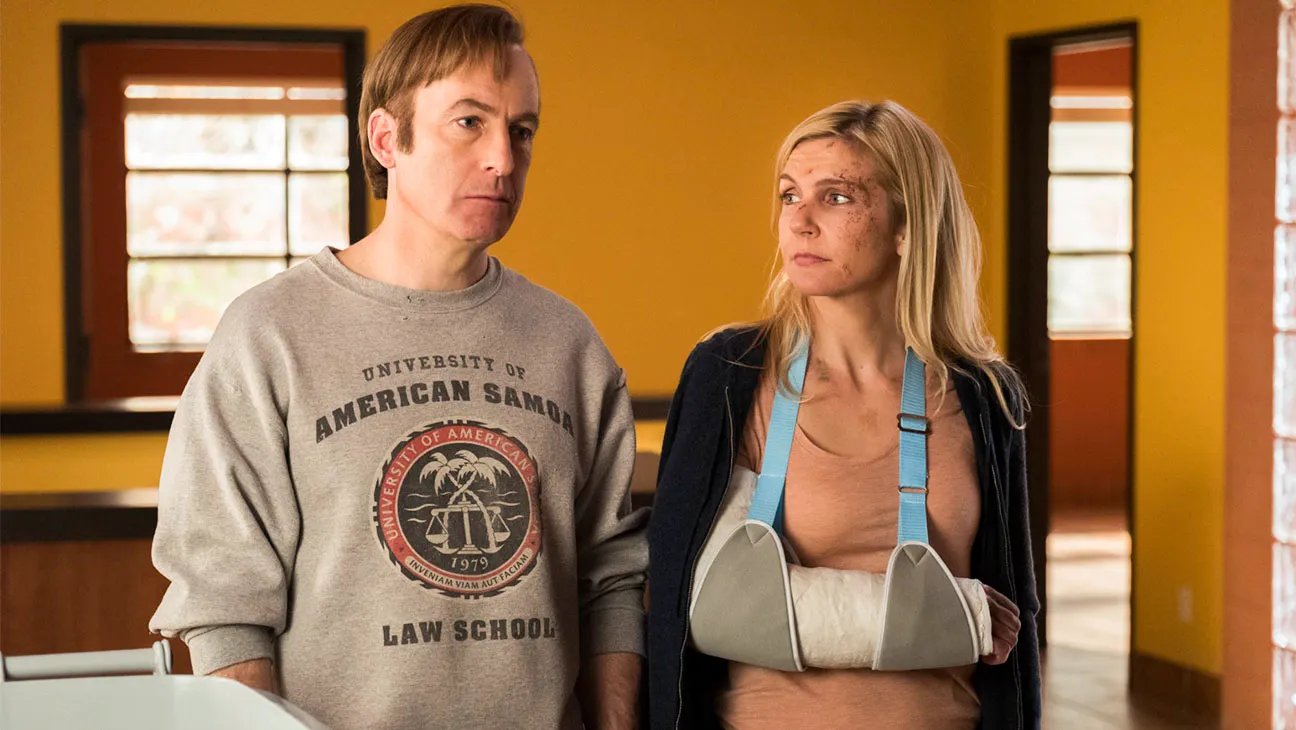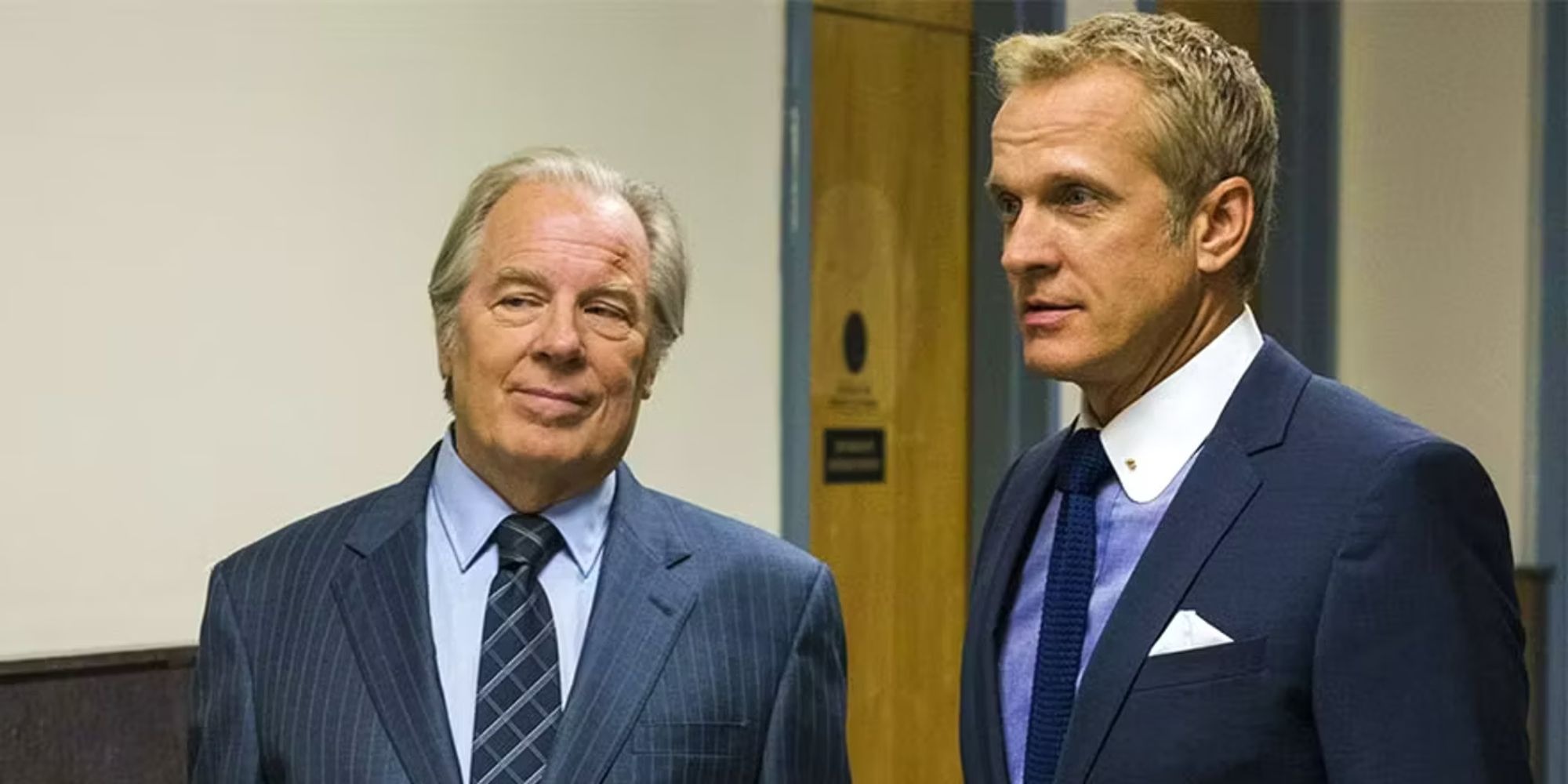After realizing that covering Chuck’s electromagnetic hypersensitivity would cause HHM’s insurance premiums to skyrocket, along with Chuck’s attempt to sue Howard for $8 million, the situation between the two finally reaches a breaking point.
Howard, who had long supported Chuck, was now at odds with him. He had tried to convince Chuck to retire rather than battle the insurance company’s decision, but Chuck stubbornly refused to back down. Howard, once Chuck’s strongest ally in the firm, had been pivotal in attempting to block Jimmy’s law career.

Howard even offered to support Chuck’s effort to have Jimmy disbarred and jailed. However, following Chuck’s disastrous performance on the witness stand in the “Chicanery” episode, exposing his mental health issues in front of a courtroom, their bond started to crack.
Despite their history, Howard still understood Chuck’s ultimate goal — protecting HHM’s reputation. But Chuck had become a liability instead of an asset.
Unable to keep up with the damage Chuck was causing to the firm’s future, Howard could only offer him the first $3 million of what he owed him, alongside a dignified exit. Chuck reluctantly accepts, even though it is clear that the decision pains him deeply.
Chuck’s actions, particularly his obsession with bringing down Jimmy, had ruined everything for him. As he walks away from HHM one final time, his face changes between anger, pride, sadness, and a sense of regret, creating a tragic portrait of a man unable to accept the consequences of his own choices.
Kim’s priorities change
Kim Wexler is going through a crisis. After the car accident that left her injured, she quietly observes Jimmy as they work together to collect the documents scattered during her accident. She remains stoic, lost in her thoughts.
The following morning, Jimmy notices her pain and feels guilty, concerned that she’s pushing herself too hard and risking her health. However, Kim accepts responsibility for the accident, acknowledging that her decision to drive while tired put both her and others at risk.
She decides to take a break, postponing her other commitments, renting some movies, and spending time with Jimmy — for once focusing on her well-being and happiness. This is a major change for Kim, who is typically so driven.
Jimmy, having lost out on the Sand Piper settlement money, decides to close the office, giving Kim the chance to work from home and save some money. This moment highlights the tension between the two characters — both are caught between their moral compasses, which are constantly pulling them in different directions.
Their relationship remains strong, but there’s an underlying sense that something will eventually tear them apart, as foreshadowed by their futures in Breaking Bad.
Cain and Abel in New Mexico
When Jimmy learns of Chuck’s forced retirement, he visits him at home, only to find Chuck using electrical appliances without showing symptoms of his electromagnetic hypersensitivity. This discovery doesn’t bring any sense of victory for either brother; instead, it marks the beginning of their final confrontation.
Jimmy expresses regret over his actions to regain control of the Mesa Verde case, but Chuck refuses to show any remorse for his actions, particularly his attempts to disbar Jimmy. Chuck’s cold, detached response to Jimmy, especially when he tells him that he “never meant all that much” to him, cuts deep.
While this statement is cruel, Michael McKean, who portrays Chuck, believes it is false. In a 2017 interview with Vulture, McKean asserted that it was absurd to suggest that Chuck didn’t care about his brother.
In reality, Chuck’s actions in trying to destroy Jimmy’s life — including his constant belief that Jimmy is a conman — indicate just how deeply he was affected by his brother. Chuck is correct in one way, however: Jimmy’s guilt motivates him, but he refuses to change.
The guilt that pushes him to repair the damage done in the Sand Piper case is the same guilt that leads him back to Chuck’s doorstep, yet he continues to cross moral boundaries. Their toxic dynamic, born from jealousy and differing worldviews, will continue to haunt both brothers.
Nacho and Hector’s Lives Take Turns
In the middle of the drama surrounding the McGill brothers, Nacho Varga and Hector Salamanca decide to use Manuel Varga’s upholstery shop as a cover for Hector’s drug operation. Nacho pleads with his father to go along with the deal, assuring him that it will not only benefit their finances but also provide protection in case things go wrong.
However, things quickly take a turn for the worse. Juan Bolsa informs Hector and Nacho that he plans to use Gus Fring’s resources to smuggle drugs across the border instead of using Hector’s, meaning Hector’s share of the operation will be drastically reduced.
In a fit of rage, Hector accuses Bolsa of seeking revenge, but Bolsa tries to calm him down, explaining that their boss wants them to collaborate. Hector’s temper gets the best of him, and he suffers a stroke before everyone. As Hector collapses to the floor, the others scatter, leaving only Gus and Nacho.
Gus, ever the pragmatist, falls to his knees and applies CPR to Hector, while Nacho, who had previously planned to kill Hector, seizes the opportunity to swap out the fake nitroglycerin pills with real ones. This is a pivotal moment in the story, as it marks the beginning of Hector’s decline and Gus’s rise to power.
Nacho, however, is unaware of the future events that will play out and is solely focused on getting Hector out of his life once and for all.
Chuck chooses suicide
Chuck’s battle with his electromagnetic hypersensitivity takes a tragic turn. After days of isolating himself and destroying his home to understand why his electric meter keeps running, Chuck’s pain only intensifies. With no answers and his home in ruins, he sits alone in his living room, his eyes vacant and lifeless.

The only source of light in the room comes from a lantern, which Chuck slowly kicks toward the edge of his coffee table — a potent symbol of his mental and emotional state.
Earlier in the episode, we saw a flashback of a young Chuck and Jimmy reading The Adventures of Mabel by lantern light, a moment from their childhood that now feels even more poignant. The lantern, just like the book Mabel, symbolizes Chuck’s increasing isolation.
Where once there was warmth in his relationship with Jimmy, now there is only coldness, fueled by jealousy, insecurity, and an obsessive devotion to the law. Jimmy, on the other hand, has burned through the trust Chuck had in him, his refusal to follow rules and moral codes leaving their bond irreparably damaged.
Chuck’s suicide is his final act of self-destruction, a fitting conclusion for a character who had always believed himself to be the only moral figure in his world. Chuck’s suicide is his final act of self-destruction.
“Better Call Saul” has always been defined by the conflict between the McGill brothers. With Chuck’s death, Jimmy must face his future alone, paving the way for his eventual transformation into Saul Goodman. Don’t miss out on this emotionally charged movie streaming now on Netflix for subscribers.



